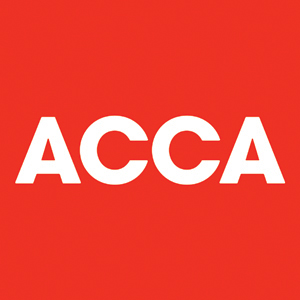Related Research Articles
Professional certification, trade certification, or professional designation, often called simply certification or qualification, is a designation earned by a person to assure qualification to perform a job or task. Not all certifications that use post-nominal letters are an acknowledgement of educational achievement, or an agency appointed to safeguard the public interest.

An accountant is a practitioner of accounting or accountancy. Accountants who have demonstrated competency through their professional associations' certification exams are certified to use titles such as Chartered Accountant, Chartered Certified Accountant or Certified Public Accountant. Such professionals are granted certain responsibilities by statute, such as the ability to certify an organization's financial statements, and may be held liable for professional misconduct. Non-qualified accountants may be employed by a qualified accountant, or may work independently without statutory privileges and obligations.

A personal trainer is an individual who has earned a certification that demonstrates they have achieved a level of competency for creating and delivering safe and effective exercise programs for apparently healthy individuals and groups or those with medical clearance to exercise. They motivate clients by collaborating to set goals, providing meaningful feedback, and by being a reliable source for accountability. Trainers also conduct a variety of assessments beginning with a preparticipation health-screening and may also include assessments of posture and movement, flexibility, balance, core function, cardiorespiratory fitness, muscular fitness, body composition, and skill-related parameters to observe and gather relevant information needed to develop an effective exercise program and support client goal attainment. These assessments may be performed at the beginning of and after an exercise program to measure client progress toward improved physical fitness. They also provide education on many other aspects of wellness, including general health and nutrition guidelines. Helping clients to reach their full potential in various aspects of life requires a comprehensive client-centered approach along with a belief that clients are resourceful and capable of change.

Certified Public Accountant (CPA) is the title of qualified accountants in numerous countries in the English-speaking world. It is generally equivalent to the title of chartered accountant in other English-speaking countries. In the United States, the CPA is a license to provide accounting services to the public. It is awarded by each of the 50 states for practice in that state. Additionally, almost every state has passed mobility laws to allow CPAs from other states to practice in their state. State licensing requirements vary, but the minimum standard requirements include passing the Uniform Certified Public Accountant Examination, 150 semester units of college education, and one year of accounting related experience.
The Chartered Financial Analyst (CFA) program is a postgraduate professional certification offered internationally by the American-based CFA Institute to investment and financial professionals. It has the highest level of global legal and regulatory recognition of finance-related qualifications. The program covers a considerably wide range of topics relating to advanced investment analysis, security analysis, statistics, probability theory, fixed income, derivatives, economics, financial analysis, corporate finance, alternative investments, and portfolio management, and provides a generalist knowledge of other areas of finance.

Founded in 1904, the Association of Chartered Certified Accountants(ACCA) is the global professional accounting body offering the Chartered Certified Accountant qualification (ACCA). ACCA's headquarters are in London with principal administrative office in Glasgow. ACCA works through a network of over 104 offices and centres in 52 countries - with 323 Approved Learning Partners (ALP) and more than 7,300 Approved Employers worldwide, who provide employee development.
Chartered Alternative Investment Analyst (CAIA) is a professional designation offered by the CAIA Association to investment professionals who complete a course of study and pass two examinations. The "alternative investments" industry is characterized as dealing with asset classes and investments other than standard equity or fixed income products. Alternative investments can include hedge funds, private equity, real assets, commodities, and structured products. The CAIA curriculum is designed to provide finance professionals with a broad base of knowledge in alternative investments.

A police academy is a training school for police recruits. It is also known as a law enforcement academy, college, or university. It involves a variety of background checks. These include examinations, physical requirements, medical requirements, legal training, driving skills, equipment training, and firearm training for law enforcement recruits. The academy prepares recruits for the law enforcement agency they will be assigned to upon graduation.
The Certified Financial Planner (CFP) designation is a professional certification mark for financial planners conferred by the Certified Financial Planner Board of Standards in the United States, and by 25 other organizations affiliated with Financial Planning Standards Board (FPSB), the owner of the CFP mark outside of the United States.

Crime analysis is a law enforcement function that involves systematic analysis for identifying and analyzing patterns and trends in crime and disorder. Information on patterns can help law enforcement agencies deploy resources in a more effective manner, and assist detectives in identifying and apprehending suspects. Crime analysis also plays a role in devising solutions to crime problems, and formulating crime prevention strategies. Quantitative social science data analysis methods are part of the crime analysis process, though qualitative methods such as examining police report narratives also play a role.
The International Association of Law Enforcement Intelligence Analysts (IALEIA) is an organization incorporated in the United States in 1981. The function of IALEIA is to advance standards of professionalism in law enforcement intelligence analysis at the local, state, national and international levels. IALEIA's aim is to enhance general understanding of the role of intelligence analysis, encourage the recognition of law enforcement intelligence analysis as a professional endeavor, develop International qualification and competency standards, reinforce professional concepts, develop training standards and curricula, supply advisory and related services on intelligence analysis matters, conduct analytic-related research studies and provide the ability to disseminate information regarding analytical techniques and methods.
The Australian Computer Society (ACS) is an association for information and communications technology professionals with over 45,000 members Australia-wide. According to its Constitution, its objects are "to advance professional excellence in information technology" and "to promote the development of Australian information and communications technology resources".
Public Analysts are scientists in the British Isles whose principal task is to ensure the safety and correct description of food by testing for compliance with legislation. Most Public Analysts are also Agricultural Analysts who carry out similar work on animal feedingstuffs and fertilisers. Nowadays this includes checking that the food labelling is accurate. They also test drinking water, and may carry out chemical and biological tests on other consumer products. While much of the work is done by other scientists and technicians in the laboratory, the Public Analyst has legal responsibility for the accuracy of the work and the validity of any opinion expressed on the results reported. There is an Association of Public Analysts, which includes members with similar roles if different titles in other countries.
Following is a partial list of professional certifications in financial services, with an overview of the educational and continuing requirements for each; see Professional certification #Accountancy, auditing and finance and Category:Professional certification in finance for all articles.

The CMT Association is a non-profit, global, professional organization of technical analysts headquartered in New York City. The CMT Association certifies that an individual is competent in the use of technical analysis via the Chartered Market Technician (CMT) designation.
Professional certifications in computer technology are non-degree awards made to those who have achieved qualifications specified by a certifying authority. Depending on the particular certification, qualifications may include completing a course of study, proof of professional accomplishments, achieving a specified grade on an examination. The intention is to establish that an individual holding a certification is technically qualified to hold certain types of position within the field.

The International Requirements Engineering Board (IREB) e.V. was founded in Fürth in Germany in October 2006. IREB e.V. is as a legal entity based in Germany.
ACAMS is the largest international membership organization dedicated to enhancing the knowledge and expertise of financial crime detection and prevention professionals, from a wide range of industries, in both the public and private sectors. ACAMS offers the Certified Anti-Money Laundering Specialist (CAMS) credential that certifies the holder's expertise in anti-money laundering.
The Hungarian Testing Board (HTB), or the Hungarian Software Testing and Qualifications Board (HSTQB), is a non-profit organisation founded in 2007 for the purpose of supporting the improvement of the professionals practicing in the field of inland software testing, software quality and related areas. In addition to testing in itself, the HTB is an official panel for all testing related disciplines and activities in Hungary.
McAfee Institute LLC., is a professional certification body which administers several board certifications for the intelligence and investigative sectors. Topics available for training include cryptocurrency investigations, cyber intelligence and investigations, counterintelligence, human trafficking, workplace violence, active shooter, organized retail crime, leadership, incident response, digital forensics, fraud, deception detection and more.
References
| This organization-related article is a stub. You can help Wikipedia by expanding it. |